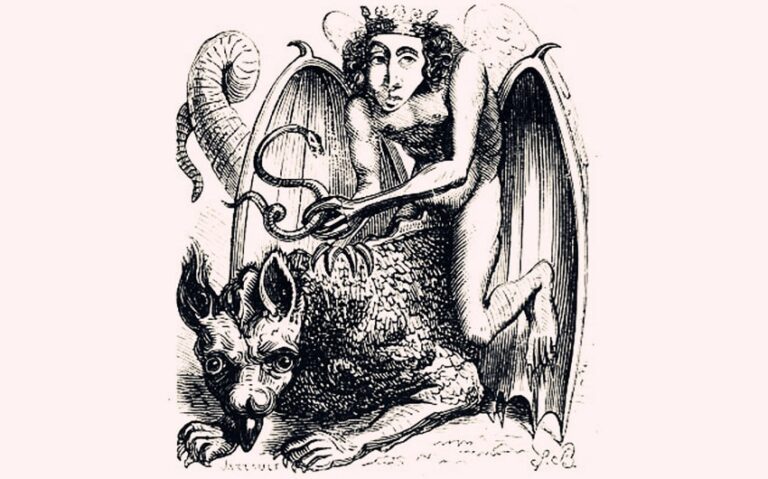40 Powerful Names Meaning Assassin and Their Mysterious Historical Origins
When you explore the name meaning assassin, you step into a world filled with discipline, mystery, and silent strength. The word “assassin” isn’t simply about violence—it carries centuries of history, devotion, and mastery. From its origins in medieval Persia to the hidden arts of Japan and the legendary names of myth, it represents precision, control, and purpose. In this article, you’ll discover where the term came from and learn about different categories of names that capture the spirit of the assassin—each drawn from authentic cultural, linguistic, or symbolic origins.
The Historical Origin of the Word Assassin
The term “assassin” comes from the Arabic word “Hashashin” (or “Hashishin”), referring to a secretive sect of Nizari Ismaili Muslims active from the 11th to 13th centuries. Based in the mountains of Persia and Syria, these warriors became known in the West for their precision, loyalty, and secrecy. They operated under the leadership of Hassan-i Sabbah, using intelligence, disguise, and patience to achieve political and military goals.
Crusaders and European chroniclers who encountered the Hashashin brought tales of their skill and fearlessness back to Europe, though often colored by misunderstanding. Over time, the Arabic word evolved into the Latinized form Assassini, and later the English word assassin. Contrary to legend, the term didn’t mean “hashish users” as once rumored—it reflected a disciplined and organized group with strict moral and spiritual codes.
To understand the true name meaning assassin, you must see it not as a symbol of destruction, but as a reflection of devotion, discipline, and purpose—values shared by warriors, mystics, and strategists across cultures.
Categories of Names Meaning Assassin
Across history, many names and titles have carried meanings tied to stealth, loyalty, or the art of precise action. Below are authentic categories of names meaning assassin, each with real examples drawn from historical, cultural, or mythological sources.
Historical and Cultural Names
These names come from real historical groups or figures associated with stealth, secrecy, or specialized warfare. They represent the origins of the assassin archetype in human history.
-
Hashashin (Arabic) – The original brotherhood that gave rise to the term “assassin,” known for their strategy and devotion.
-
Shinobi (Japanese) – Another name for the ninja; specialists in espionage, sabotage, and infiltration during feudal Japan.
-
Ninja (Japanese) – The more popular term for the same covert agents, symbolizing discipline, patience, and invisibility.
-
Hashim (Arabic) – Meaning “breaker” or “destroyer,” related to strength and decisive action.
-
Assas (Arabic) – Meaning “foundation” or “base,” symbolizing steadiness and strength in secret missions.
-
Fedayeen (Arabic) – Means “those who sacrifice themselves.” Historically used for warriors or freedom fighters acting on devotion.
-
Thuggee (Hindi / Sanskrit) – Refers to a historical Indian cult of stealthy stranglers who targeted travelers; from this comes the English word “thug.”
-
Spartan (Greek) – While not assassins, the Spartans were known for stealth attacks and absolute discipline in warfare.
-
Hashmat (Arabic) – Meaning “bravery” or “valor,” often used to denote hidden strength.
-
Mamluk (Arabic / Egyptian) – Elite soldiers trained for loyalty and precision, forming a disciplined warrior class.
These names reflect how cultures have long admired stealth, control, and courage—core traits of the assassin archetype.
Symbolic or Metaphorical Names
These names are drawn from nature and language, representing qualities like stealth, calm precision, and subtle power—core to what an assassin symbolizes.
-
Shade (English) – A poetic name meaning darkness or concealment, linked to invisibility and silence.
-
Raven (English) – The raven, seen in many cultures as an intelligent and watchful bird, represents foresight and cunning.
-
Blade (English) – Symbolizing precision, sharpness, and the ability to cut through obstacles cleanly and efficiently.
-
Noctis (Latin, “night”) – Meaning “of the night,” reflecting quietness and mystery.
-
Onyx (Greek origin) – A dark gemstone name symbolizing focus, strength, and inner control.
-
Shadow (English) – Represents invisibility, stealth, and movement between worlds of light and dark.
-
Falcon (Arabic / English) – A bird known for speed and accuracy, representing a sharp, strategic mind.
-
Viper (Latin origin) – A name symbolizing danger, precision, and the ability to strike swiftly when necessary.
-
Obsidian (Latin origin) – The volcanic glass used for ancient blades; symbolizes transformation through focus.
-
Ashen (English) – Derived from “ash tree,” associated with calm endurance and quiet power.
These names embody the essence of the assassin’s craft: action guided by patience, intelligence, and perfect timing.
Mythological or Legendary Names
Throughout myth and legend, certain gods and heroes embody the assassin’s defining qualities—cunning, strategy, and control over fate. These names come from authentic mythological traditions worldwide.
-
Nemesis (Greek) – Goddess of divine justice and retribution; symbolizes balance and the correction of wrongdoing.
-
Anubis (Egyptian) – The god who guides souls to the afterlife, representing silent protection and unseen presence.
-
Loki (Norse) – The cunning trickster god, known for intelligence, disguise, and unpredictability.
-
Hades (Greek) – Lord of the underworld, embodying calm authority and unseen power.
-
Mictlantecuhtli (Aztec) – God of death and the underworld, guardian of the silent transition between life and death.
-
Sekhmet (Egyptian) – Warrior goddess of retribution and healing; precise and powerful.
-
Kali (Hindu) – Goddess of destruction and transformation, symbolizing divine power and control over chaos.
-
Morrigan (Celtic) – The goddess of war and fate, known for shape-shifting and guiding warriors to victory or death.
-
Odin (Norse) – God of wisdom and war, associated with ravens and secret knowledge.
-
Artemis (Greek) – Goddess of the hunt and precision, symbolizing focus, independence, and perfect aim.
These mythological names remind you that the assassin archetype is ancient—rooted in the balance between light and shadow, justice and retribution.
Modern and Fictional Names
In today’s world, literature, film, and gaming have reimagined the assassin as a complex figure—a disciplined hero or antihero representing focus, intelligence, and moral conflict. The following names are rooted in authentic creative works that helped shape the modern image of the assassin.
-
Ezio – From Assassin’s Creed II; Italian for “eagle,” symbolizing freedom and perspective.
-
Altair – Arabic for “the flying one” or “bird”; symbolizes agility and sharp vision.
-
Kassandra – From Assassin’s Creed Odyssey; Greek name meaning “shining upon man,” symbolizing foresight and destiny.
-
Connor (Ratonhnhaké:ton) – From Assassin’s Creed III; Mohawk origin meaning “life scratcher” or “scraper,” tied to renewal and perseverance.
-
Corvo – Latin for “raven,” protagonist of Dishonored, symbolizing moral complexity and vengeance with precision.
-
John Wick – Modern fictional example symbolizing professionalism, focus, and unbreakable code.
-
Kiritsugu – From Fate/Zero; a Japanese name representing pragmatism and sacrifice for the greater good.
-
Agent 47 – From Hitman; represents precision, control, and mastery of craft.
-
Nakoruru – Ainu name meaning “to pray” or “to protect,” featured in Japanese media as a silent guardian.
-
Silencio – Spanish for “silence,” often used as a codename representing stealth and invisibility.
These names reveal how the assassin archetype has evolved in modern storytelling—from historical killers to symbols of control, intelligence, and self-discipline.







